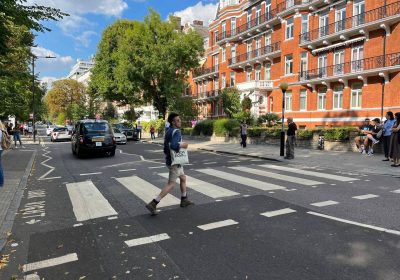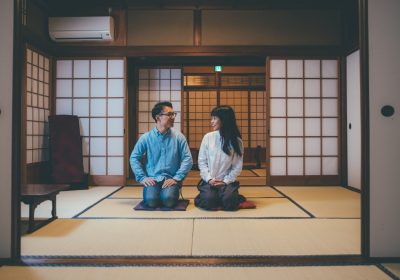
最近我有幸在 *CUP 媒體的新節目「大勢講」中與陶傑及 Colin Touchin 對談,討論東方的音樂教育與西方世界之間的差異。不出所料,Facebook 出現不少留言表示同感,感嘆香港已成文化沙漠,直指香港家長的音樂教育初衷,已與「求知」相距頗遠,反而以著眼考取樂器證書、提高孩子未來競爭力居多。
不過,光看香港學童學樂器的風氣,其實難以完全說明我城古典音樂發展停滯的問題癥結,讓我們來說說本地音樂廳聽眾各種有/無禮舉止,可能更有啟發性。
咳咳咳咳個不停的香港觀眾
我們在音樂會上聽的經常是協奏曲和交響樂之類,這些作品多由 3 至 4 個樂章組成,演奏期間,指揮會在樂章與樂章之間停頓大約 20 至 30 秒,一方面給自己抹個汗,也讓表演者稍息整頓,另一方面亦讓聽眾得空細味、吸收先前聽到的樂章。
在西方國家一些有名望的音樂廳,例如柏林愛樂廳、維也納金色大廳、倫敦巴比肯藝術中心,聽眾出於禮儀和尊重,都會在演奏途中屏聲靜氣,部分人便會趁章節之間的空檔釋放期間忍住的咳嗽或清喉嚨。
話說回來香港的音樂廳,觀眾似乎都很熱衷展示自己能在欣賞演奏時保持安靜的美德,竟都衝著這演奏稍歇的間隙爭相咳嗽,此起彼落,聲如雷響,彷彿集體罹患哮喘、肺炎之類不得了的氣管疾病。那咳嗽聲作狀得滑稽,往往讓台上演奏者見笑。更有甚者,強打噴嚏或故意浮誇地挪動坐姿的也大有人在,間有拉開罐裝飲料的突兀聲響更是錦上添花,硬生生在莊嚴的音樂廳營造出馬戲團即視感。幾十秒的間隙成了台下聽眾合奏的 show time,如果有人覺得古典音樂太過沉悶,這段間奏對你應該足夠有娛樂性了。
我與幾位曾在香港大型音樂廳演出的專業指揮家談過,非常驚訝他們都異口同聲對香港人這種造作的「禮貌」頗有微辭。他們慨嘆香港在這方面的問題實在非同小可,事實上那些不願消停的假咳嗽往往會打斷他們的專注力,甚至是演奏旋律流盪的氣氛。
何必把現代科技帶進音樂廳?
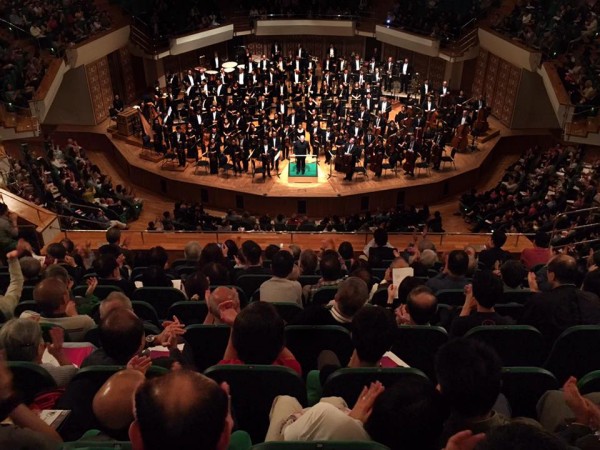
有部分香港家長會帶孩子出席古典音樂會,光是這一點其實的確很值得稱道,畢竟我們得承認,想孩子能更廣泛接觸音樂,不能單靠學習和練習技藝,還要多聽多欣賞才行。不過孩子入場是否真的能用心感受音樂,卻完全是另一回事。
這個年代,會在坐車時看書的孩子幾乎滄海一粟,他們平日的注意力已無時不刻不被智能手機或電子產品霸佔,就是把他們放到音樂廳裡也難以改變這一慣性。結果能在音樂會上放下電子產品,心無旁騖傾聽演奏,或細閱大會提供的流程表的小孩少之又少,就我最近出席的幾個香港音樂會 —— 包括香港管弦樂團維也納新年音樂會、香港小交響樂團第一屆香港國際指揮大賽、第九屆香港國際室內樂音樂節 —— 期間的觀察,那些孩子坐在比我靠前的位置,不是在用 Facebook 或 WhatsApp 傳訊,就是忙著上傳相片到 Instagram 或沉醉手機遊戲,是以會聽音樂聽到忘形睡著的也非常稀有,而這放在十多年前原是頗為常見的事。
先別說在音樂會上玩手機,光燦燦的熒幕會對旁人構成滋擾,單是家長願意花大錢買好位子給孩子,卻無心鼓勵他們把握機會欣賞演奏的態度,已令我目瞪口呆。孩子學樂器,能學有所成展現出色演奏技巧,或者得以在比賽和考試上取得彪炳成績固然重要;但經常被香港人遺忘卻也同樣重要的一點,是孩子究竟能否從中提煉對西方古典音樂傳統深刻的體認,進而陶冶對它的尊重。
有上述這樣的一批觀眾,我們又如何能在古典音樂比得上西方?如果我們始終無法具備相應的禮貌和禮節,任我們的經濟和科技進步得如何厲害,香港將永遠是不變的文化沙漠。
The Embarrassments Inside the Concert Halls
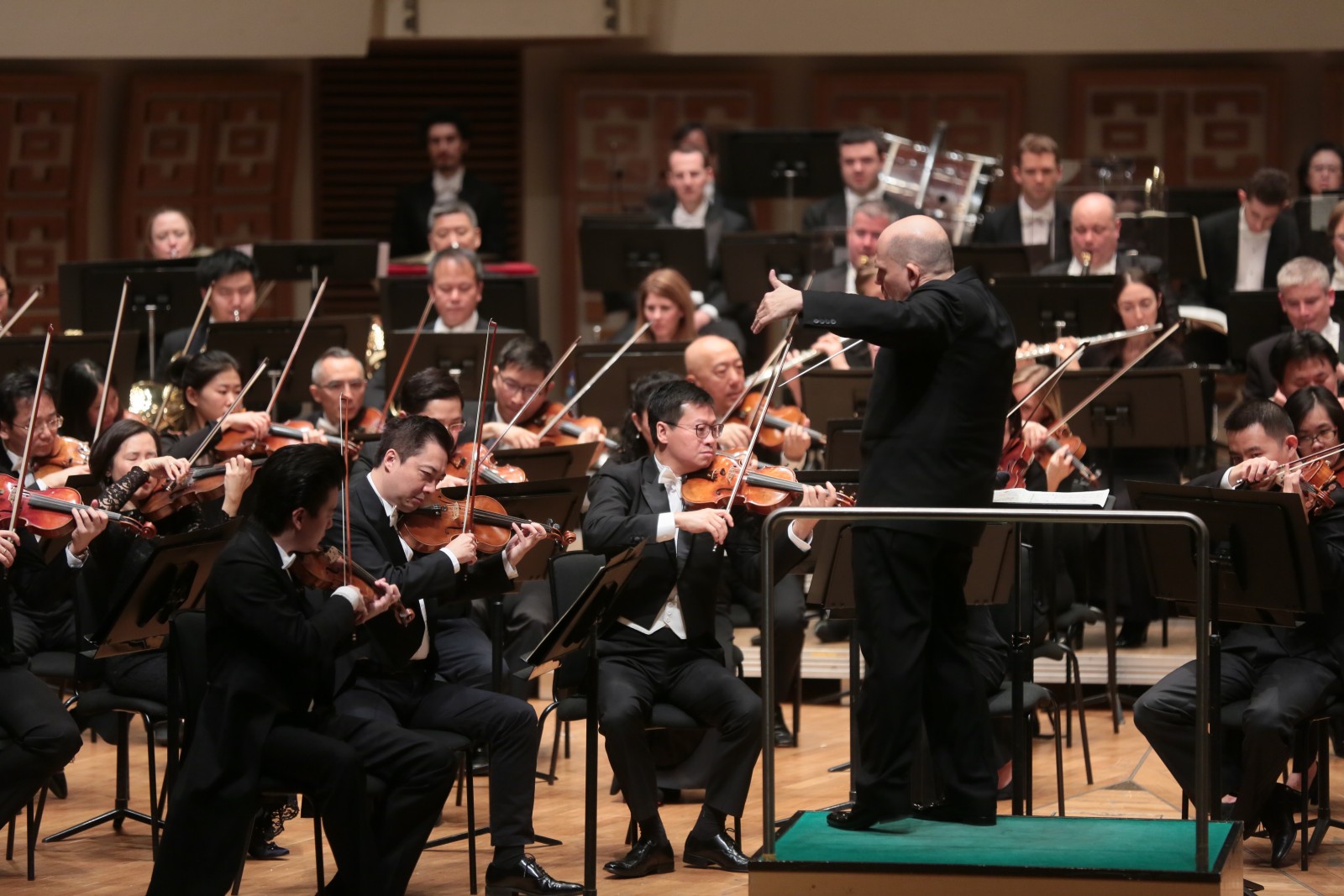
I recently had the opportunity to speak with Chip Tsao and Colin Touchin on *CUP Media’s new programme ‘The Big Small Talk’ about how music education in the liberal West differed to those in the conservative East. It did not surprise me when I read the many comments on Facebook, largely concurring to what we said during the programme, lamenting how Hong Kong has become a cultural desert and discussing how Hong Kong’s parents pushed their children to learn a wide array of instruments not for the amusement and knowledge in such education, but for the certificates gained from examinations that might be beneficial for one’s future.
However, by simply looking at how Hong Kong’s children learn the musical instruments cannot fully explain the stagnation of the development of classical music in our city. It is essential to look at the behaviours and etiquettes (or lack of) in the city’s concert halls. The following two areas deserve greater attention.
Cough, Cough and Cough
Concertos and symphonies are often heard in an orchestral concert. These works are usually formed of three and four movements, respectively, and the conductors would normally pause briefly (around 20 to 30 seconds) between the movements, to allow the players to take a break, to encourage the audiences to assimilate the music or to allow themselves to wipe the sweats off their faces.
In the prestigious concert venues in the West, such as the Philharmonie in Berlin, the Musikverein in Vienna or the Barbican in London, a few of the audiences would also take the pauses between movements as an opportunity to clear their throat or briefly cough. They deterred from doing so during the performance itself out of respect for the performers and other audiences.
In Hong Kong’s concert venues, however, audiences consistently over-emphasise their good manners and are determined to show that they appreciate the virtue of remaining silent when the music is being performed. As such, hundreds of audiences would always cough loudly and continuously – as if they were all suffering from asthma, pneumonia or chronic obstructive pulmonary disease – during these brief pauses. Some coughing sounds are farcical and artificial and often bring out grins and even the shaking of heads from the orchestral players on the stage.
Furthermore, it is not uncommon to also hear fabricated sneezes and see the audiences’ shifting their bodies dramatically during the pauses between movements. The sounds from the opening of cans of beverages often add to the many noises generated, which sometimes seemingly transform a solemn concert hall into a circus. In short, the pauses between movements can easily be turned into a symphony of ostentatious sounds composed by the audiences’ creativity. For anyone who finds the classical music being performed as boring, these interludes of audience participation might prove to be more entertaining.
Having spoken with several professional conductors who have performed in some of Hong Kong’s most notable concert halls, I am surprised by how all of them were compelled to criticise such pretentious good manners from our city’s audiences. They bemoaned that Hong Kong is the city with the biggest problem in this area and those prolonged and artificial coughs often disrupted their concentration as well as the flow of the music.
Modern Technology in Concert Halls
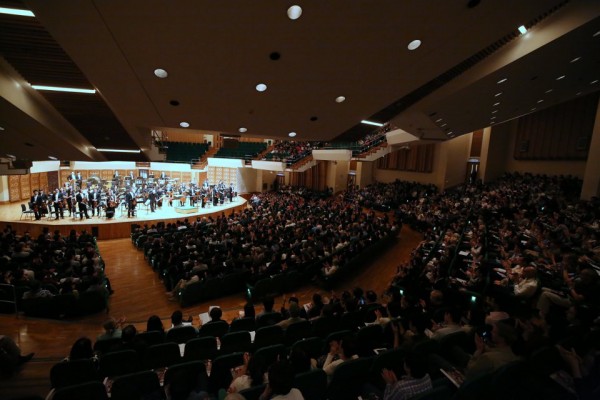
It is commendable that some Hong Kong parents are willing to take their children to classical music concerts. We ought to recognise that it is of immense salience for children to get a wide exposure to music, not only through learning and practising, but also listening and appreciating.
It is entirely a different matter, however, if the children actually listen to the music in the concert halls.
In this day and age, it is almost impossible to find a child or a teenager reading in public transportation. They are always preoccupied with their smart phones or electronic gadgets. Such behaviours are extended into the concert halls. It is a rarity to see a child listening attentively to the music performed, or reading the programme notes provided. And it is also a scarce occurrence nowadays for a child to fall asleep during a concert, something quite common in the past decade.
Instead, during my recent visits to Hong Kong’s concert halls attending the Hong Kong Philharmonic Orchestra’s Viennese New Year concert, the Hong Kong Sinfonietta’s 1st Hong Kong International Conducting Competition and the 9th Hong Kong International Chamber Music Festival, I saw rows and rows of children in front of me texting on Facebook or WhatsApp, posting photos onto Instagram or gaming on various apps.
Let’s not talk about how those bright screens disturbed other audiences – I was simply stunned that the parents were willing to spend a considerable sum of money, securing some of the best seats in the house for their children, but had no intention of encouraging them to focus on, or at least try to appreciate, the music performed on stage. Of course it is important for a child to be able to demonstrate technical flamboyance on an instrument, or achieve sterling results in competitions and examinations. But what equally matters, and is indeed often overlooked in Hong Kong, is whether a child has cultivated an intrinsic reverence for, and profound understanding of, the Western classical music tradition at the same time.
With audiences like the above, how can we possibly rival the West in classical music? Without respectable manners and etiquettes in the concert halls, Hong Kong will always remain a cultural desert, no matter how commercially, technologically and financially dominant and advanced it claims to be.







